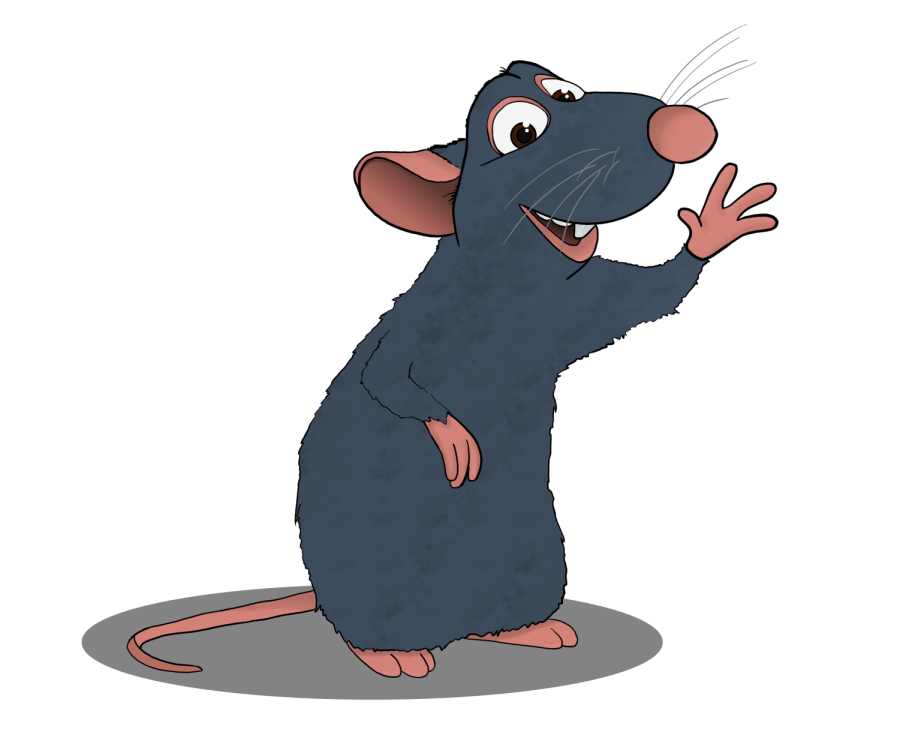What the film ‘Ratatouille’ can teach us about imposter syndrome
Remy the rat’s high-profile career didn’t seem to convince him of his talent, but why?
Most of you are likely familiar with the film “Ratatouille” (2007) as the greatest piece of cinematic art ever created, or at least one of the greatest movies of the 21st century and the winner of the 2008 Oscar for the Most Positive Portrayal of Rodents in Relation to Food (just kidding). On its surface, it is a whimsical, inspiring story about an anthropomorphic rat (named Remy — NOT ratatouille) with a soft spot for fine cuisine and watching cooking shows with an old lady.
In “Ratatouille,” speciesism (the viewing of other, non-human species as “lower” than us), perhaps to broaden the message and make it more accessible to younger audiences, is used as a metaphorical substitute for the racism and prejudice that enable environments that are prone to inducing imposter syndrome.
Imposter syndrome is generally defined as “doubting your abilities and feeling like a fraud” and is more likely to afflict high-achieving individuals. Remy’s full range of abilities are initially repressed and pared down to a functional minimum as a poison checker by his father in the rat colony, causing Remy to feel like an imposter. This imposter syndrome would later follow him into the renown human-run French kitchen in Paris, France.
Remy represents the classic case of imposter syndrome. He does not believe in himself or his skills, and feels as if he comes from the “wrong” background, even doubting himself while cooking in a professional French kitchen. Remy’s own lack of confidence overlooks the fact that he is a more innately gifted chef than any other cook in the film (aside from Gusteau, the top (human) chef in the film).
The film’s autobiographical-documentary structure, alongside with Remy’s consistent and bluntly honest first-person narration, organically recreates an incredibly natural internal dialogue that we all get to hear. I think this is one reason why “Ratatouille” is so beloved by all — it’s extremely relatable, because it already sounds like the voice inside your head.
The numerous, highly challenging hoops Remy has to jump through as a rat just to be able to practice his art compared to a human is representative of the extra steps and workarounds that must be taken by those groups most in danger of being affected by imposter syndrome.
The movie illustrates his personal journey of increasing self-esteem and confidence in who he is; that is, he finds space between these worlds in which he can comfortably reside without the feeling of being an imposter creeping in.
When Remy first sees Linguini, a young chef who also suffers from imposter syndrome, attempting to make soup, it encourages Gusteau’s philosophy of “anyone can cook” to shift to “anyone can cook, but not everyone should be allowed to try.” This attitude is the same one encouraged by the oppressors which continue to enable the conditions under which imposter syndrome thrives, especially for women and people of color in fields of study rooted in traditional academia and dominated largely by cisgender, straight, white men. However, as Remy and Linguini become friends and co-conspirators, they learn a deeper lesson in self-confidence from each other, and their initial, only partial understandings of Gusteau’s lessons begin to evolve.
Colette, the only woman at the French restaurant, represents imposter syndrome for women in a male-dominated field, and how she must work twice as hard to prove to both them and herself that she belongs.
“Look around…how many women do you see in this kitchen,” she asks. “Only me. Why do you think that is? Because haute cuisine is an antiquated hierarchy built upon rules written by stupid old men, rules that make it impossible for women to enter into this world. But still, I am here — now how did that happen? Because I am the toughest cook here.”
Her first genuine smile of the movie comes when Linguini thanks her for her advice, and she responds by saying, “Thank you.” “For what,” Linguini asks. “For taking it,” she says, implying that her being listened to or taken seriously as an expert within her profession is a rare experience.
Throughout the film, Remy’s imposter syndrome manifests itself as an imaginary Gusteau. Remy’s Gusteau represents that we are our own harshest critic, but we need not be. Remy, to his imaginary Gusteau while locked up in the trunk of the car, says: “You only tell me stuff I already know. I know who I am, why do I need you to tell me? Why do I need to pretend?”
Before fading away, imaginary Gusteau says, “Oh Remy, you never did…”
This implies that you know who you are better than any potential naysayers or critics — even yourself — and therefore that any external factors causing you to feel like an imposter do not, and cannot, accurately reflect the positive aspects of your skill set and value as a person.
We can learn a lot from the film “Ratatouille,” but there’s one lesson that should stick with us: we don’t have to feel like imposters just because we’ve been conditioned to.

I'm a senior Computer Science major and a Classical Studies minor from Newton, North Carolina with a passion for art. I also work at the Center for Experiential...








Tiffany Austin • Sep 24, 2021 at 2:01 am
Hi Victoria,
I just wanted to say I absolutely LOVED this read. I was trying to get some insight on movie characters with imposter syndrome and I am so happy I stumbled across this. You have an incredibly insightful mind and I will never look at Ratatouille the same way. It has always been one of my favorite movies, even more so now. Some more layers to Remy’s experiences would most definitely include his family. He had a complicated relationship with them, particularly with his father. If I remember correctly, his father also was one of his biggest critics, even using fear tactics, show him the mouse traps, to steer him away from pursuing his dream. It can really speak to how support systems can really feed into how we carry ourselves. Also the fact that the food critic is literally named Ego? Remy facing a food critic named after the human manifestation of inflated self esteem and ends up softening him to his core….wow…ok I’ll stop! Thank you so much for this excellent piece. Take care!